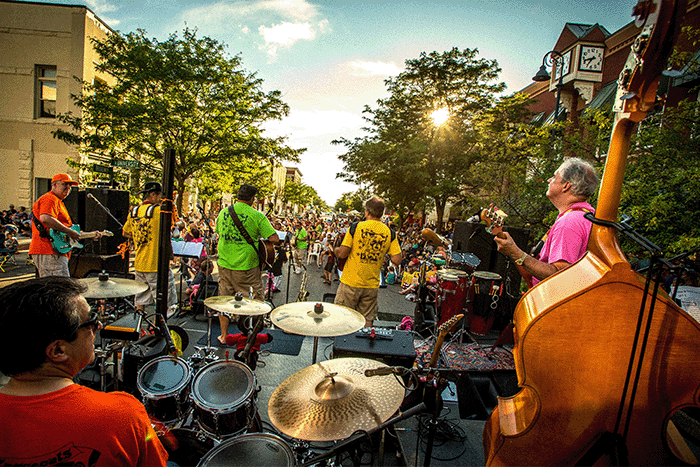Find fit, belonging and a sense of community in smaller college towns
If you are a prospective college student from a larger city, the idea of attending college in a rural setting may cause feelings of doubt, uncertainty and even fear. However, there are many benefits of attending college in a smaller, more rural community you should consider before making a decision about where to pursue your education. In this post, we explore the advantages of attending college in a rural setting, with a focus on finding a sense of community, fitting in, and socialization — particularly for first-generation students.
At Central Michigan University, your success is our goal. We even have an office dedicated to it! Check out the resources available through the Office of Student Success.
Campus setting: rural vs. urban
When it comes to choosing a campus setting, there are typically two main options: rural or urban. Rural campuses are located in small towns or remote areas, while urban campuses are in bigger cities. While each campus setting has its own advantages and disadvantages, it's important to consider what you value most and what you want to get out of your college experience.

Benefits of attending college in a smaller community
Some of the potential benefits of living and learning at a more rural campus are straightforward: less traffic on the roads, shorter lines for your morning coffee, typically a lower cost of living, and faster, easier access to nature, parks and outdoor recreation. But many students find the most meaningful advantages are more personal, interpersonal and often play a big role in the big changes we all experience as we enter adulthood.
Right fit and sense of belonging
For many students, attending college in a more rural community can provide a sense of belonging and fit that may be more difficult to find on other types of campuses. In a smaller community, you may feel more connected to your peers and professors, and may have an easier time finding friends with similar interests. This can be especially helpful for first-generation and international college students, who may feel more at ease and better supported in a smaller, close-knit community.
Comfort and identity
Attending college in a rural setting can also provide you with a sense of comfort and identity that may be harder to find on bigger, more urban campuses. For example, if you grew up in a rural area or have always felt more at home in smaller communities, attending college in a rural setting may feel more natural and comfortable for you.
For students from larger, more metropolitan areas, rural campuses can provide an opportunity to step out of your comfort zone and explore new ways of living and thinking. In like fashion, "city students" have the opportunity to share lessons learned from their background and experiences with other students. After all, learning from the diverse experiences of others is what higher education is all about.
Diversity and sense of community
Rural campuses can be as diverse and inclusive as urban campuses. While the student body may not be as large, there are still plenty of opportunities to connect with people from different backgrounds and cultures. In fact, attending college in a rural community may even make it easier to cultivate a sense of community and connect with others who share your interests or identity.

Social fit and connection
Attending college in a smaller community can also provide a stronger social fit and sense of connection. It's easier to get to know people and form meaningful relationships. Additionally, more personal interactions with professors outside the classroom can help you foster a stronger sense of place and greater engagement in the overall process of learning and growing.
Socialization and adulting
An underappreciated aspect of attending any type of in-person, residential school — be it rural, urban or suburban — are the many opportunities to be found for personal growth, socialization, and yes, adulting. It's true that living in a smaller community can require more self-sufficiency and responsibility, as there may be fewer amenities or resources available than in an urban environment. However, this can also help students develop important life skills and prepare for life after college. Additionally, rural campuses often offer unique social opportunities that can be fun, educational and hard to find anywhere else.
As we've shown, attending college in a smaller, more rural setting can provide numerous benefits for prospective college students: a sense of belonging and fit, comfort and identity, diversity and finding community, social fit and connection, and opportunities for socialization and adulting. While urban campuses may offer different advantages, it's important to consider what you want from and value most about your college experience. Choose a campus culture that aligns with your goals and interests. Whether you're a first-generation college student or simply looking for a different kind of college experience, attending college in a rural community can be a rewarding and life-changing decision.
Dig deeper: Check out some of the ways students discover — and create — community at Central Michigan University.